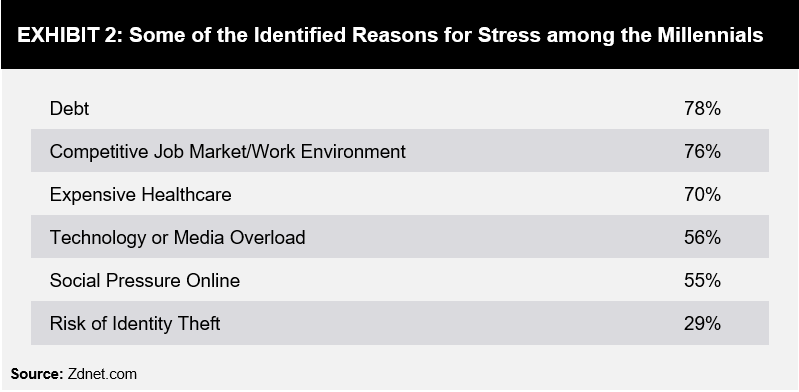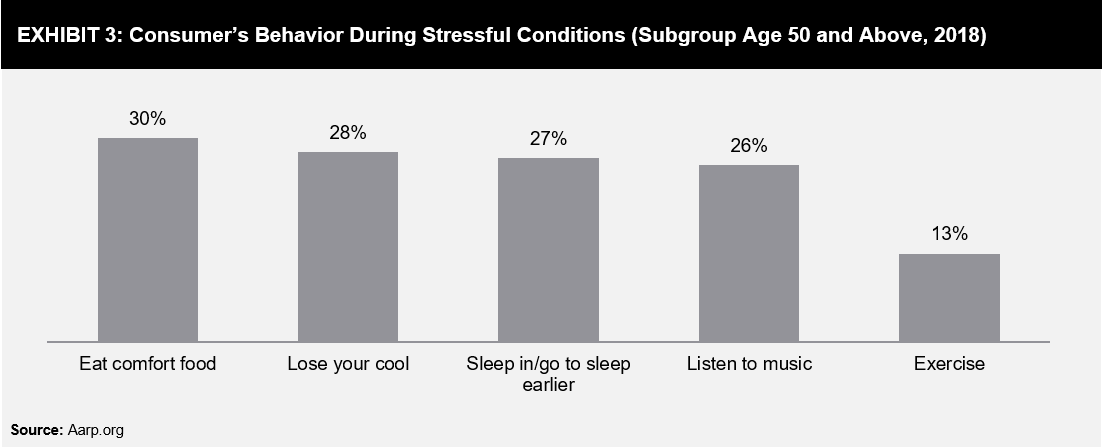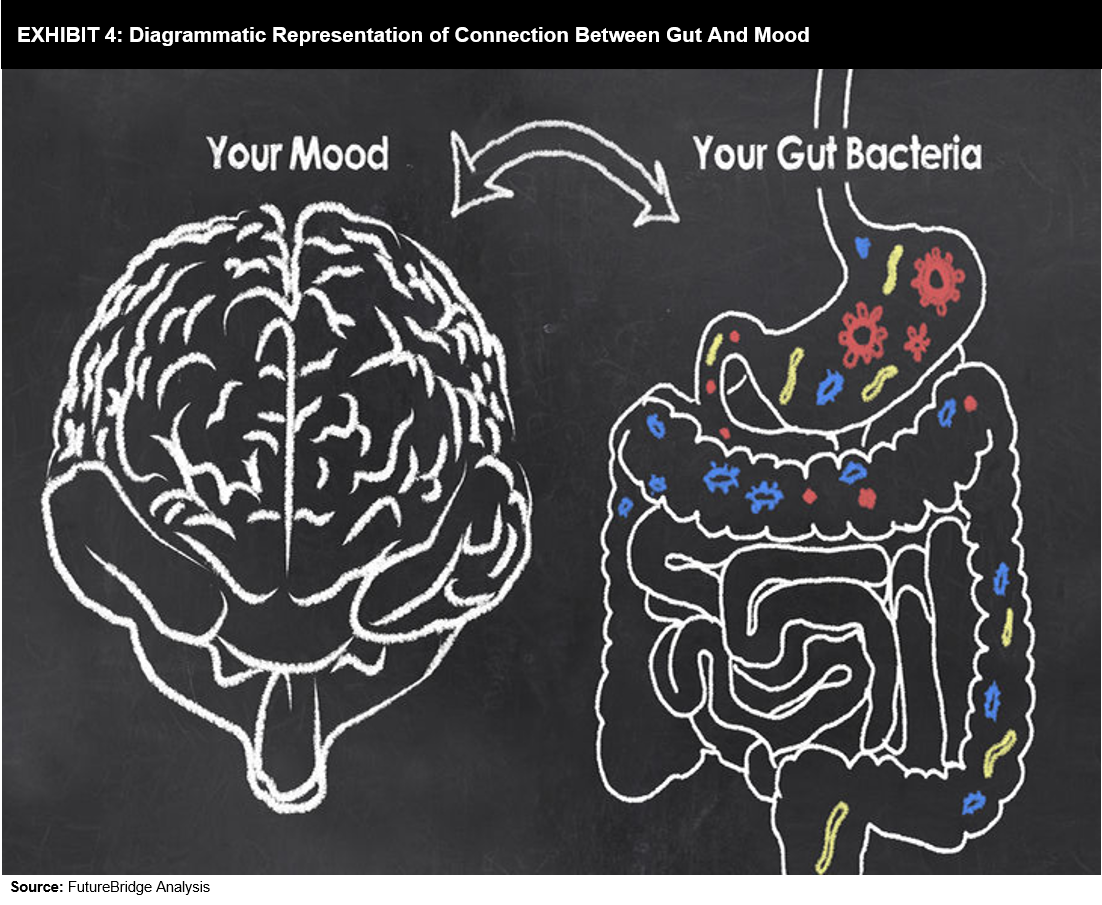Mood Foods and Nutritional Psychiatry
Introduction
Factors such as stress, improper sleep, nutritional deficiencies, mood disorders, etc., influence mood. Extensive studies also indicate the impact of nutrition and general well-being on mood, depicting a relationship between the food, gut health, and brain. Researchers are keen on exploring the effect of an individual’s diet on neuroplasticity, gut microbiota, oxidative stress, and chronic inflammation.
Mood foods have shown to improve brain health and various types of mood disorders. Consumer surveys on understanding consumer behavior have also indicated that consumers do assume that specific types of foods, when consumed, help in improving their mood and alleviating their stress.
A balanced nutritious diet is vital for the mental health of an individual. Eating foods that comprise of essential amino acids (tryptophan) help the body produce more serotonin. Protein-rich foods are considered the best to boost up the mood as it contains serotonin precursor, tryptophan. Serotonin, a neurotransmitter that is produced in the gastrointestinal tract, helps in mediating moods, regulating sleep and appetite, and also inhibits pain. The overall context helps establish a link between what we eat to our mood.
Some of the examples of protein-dense mood foods include fish, meat, lentils, chickpeas, quinoa, almonds, walnuts, and hummus (refer Exhibit 1).
Diet and Depression
A. The global scenario
The gastrointestinal tract is known to be sensitive to emotions such as anxiety, anger, and depression, which can trigger symptoms in the gut. In addition, the brain has a direct impact on the stomach and intestines. For instance, the thought of eating releases the stomach’s juices before we even eat it. Pieces of research suggest that the intestinal microbiota is associated with neuro-endocrine-immune pathways and can also be linked with various types of mood disorders. Mood disorders not only lead to stressful living but also affects the overall brain health, further leading to severe memory-related problems.
A majority of the global population is leading a stressful life due to various reasons, which further causes anxiety, sense of loneliness, sleep disorders, and depression (refer Exhibit 2). The competitive work environment is one of the primary reasons for the same among millennials. It is hence noteworthy that the consumption of brain-health supplements for stress relief and treatment of such problems has been gradually increasing. Additionally, rising health awareness and fitness trends have also raised the demand for natural supplements, especially across developed countries. In countries such as China, where dietary supplements are considered as medications, consumers generally prefer changing their diet than consuming supplements to improve their brain health.
B. Mood disorders and the gut-brain axis/connection
Researchers link mood disorders to Brain-derived Neurotrophic Factor (BDNF). Additionally, low serum levels of BDNF have been observed in various mental disorders, such as Alzheimer’s, dementia, major depressive disorder, Posttraumatic Stress Disorder (PTSD), and Schizophrenia. The diet of consumers is observed to have a profound effect on the gut microbiome, which further is found to have a positive impact on the individual’s mental health.
The consumption of chocolate alleviates mood. This is due to the magnesium content in it that plays a vital role in all major metabolisms in oxidation-reduction and ionic regulation. Several surveys have indicated that consumers do believe that consuming certain foods that they call “comfort food” helps in stabilizing their mood and reducing stress. Nutritionists across the globe suggest that patients under stress or undergoing any mental problems to consume protein-dense foods.
Various ongoing studies on probiotics suggest that they have a positive impact on lowering the symptoms of depression or any such mental condition to a large extent. Bifidobacterium longum NCC3001 has been linked with improved quality of life and reduced symptoms of depression in consumers suffering from Irritable Bowel Syndrome (IBD). In several clinical trials, Lactobacillus and Bifidobacterium bacterial strains appeared to have a positive impact on people’s mental health.
Brain Health and Mental Well-Being Report
C. What is nutritional psychiatry, and what is its need?
Nutritional psychiatry is an emerging field that is dedicated to exploring scientific pieces of evidence, which demonstrate the importance of a nutritious diet for mental health. Various researches have implemented that dietary changes suggest promise for the prevention and treatment of depression and related mental disorders. Various institutes are dedicated to studies regarding nutritional psychiatry; two of which include: The Food & Mood Centre at Deakin University (Australia) and Omega Institute (US).
Food psychiatry is not meant for consumers who suffer from eating disorders. It is for reducing various mood disorders, such as depression, by changing the food consumption pattern among consumers. Consultation with nutritional psychiatrist is beneficial for consumers who would consider examining and having a comprehensive approach to mental health, along with their daily diet and self-care routine. Consumers’ survey has also revealed that those who eat probiotics show improved anxiety problems, stress, and mental outlook as compared to consumers who do not consume it, suggesting a link between the gut microbiome and mental health (refer Exhibit 4).
Entities Exploring Nutritional Psychiatry and Mood Foods
A. Participating entities and academia
Entities such as Danone, Mead Johnson, OptiBiotix Health, Bened Biomedical Ltd., Morinaga, and Lallemand have invested in several studies that include a wide range of probiotic strains. Various studies have aimed to establish a clear role in the influence of prebiotics/foods on probiotics and their association with mental health.
Academics, including Bayer College of Medicine, California Institute of Technology, and the University of Leeds, among others, are researching a range of ingredients to understand the link between food, the gut mechanism, and the effect of diet on brain health. Entities are also investing heavily to examine the impact of food ingredients on stress reduction and mood mediation (refer Exhibit 5). A few studies illustrate that some nutrients improve blood flow, and thus, reduce stress by an increase in the in-flow of oxygen in the brain. Omega-3s (EPA and DHA), vitamin E, and polyphenols are some of the most studied ingredients, along with pro- and prebiotics.
B. Emerging nutritional psychiatry studies in research organizations and institutes
The International Society for Nutritional Psychiatry Research supports the growing field of nutritional psychiatry research to promote and enhance research approaches for the prevention and treatment of mental disorders. It encourages a multi-disciplinary approach to nutritional psychiatry research by building partnerships with other disciplines and organizations with common aims. Organizations promote events, special edition journal issues, and significant updates recent in the field of nutritional psychiatry. They are also involved in building partnerships with health bodies and relevant government organizations to support this field of study.
Professor Felice Jacka, the director of The Food & Mood Centre at Deakin University (Australia), is the Founder and President of the International Society for Nutritional Psychiatry Research (ISNPR). She is involved in various research studies that establish a connection between a human’s diet and nutrition to various mental disorders.
The Food & Mood Centre is a known research center for nutritional psychiatry. Researchers aim to understand and bridge the gap between food and its influence on an individual’s brain, mood, and mental health. Research initiatives aim to identify nutrition-based approaches to prevent and treat mental disorders.
Trend and Future Driving Mood Food’s Demand
Globally, consumer awareness regarding nutrition and fitness trend is rising, which has fueled the consumption of natural products worldwide. Consumers at present want to consume food products that comprise of natural ingredients to treat various disorders over synthetic or chemical containing medicines. Dietary supplements are also considered as medicines by several consumers, and hence, they are generally not consumed without consultation from medical professionals. Consumers tend to rely on nutrition to cure their problems, which include mental disorders as well.
Consumers across the globe are facing various mental disorders, stress being one major disorder among them. The trend shows that the consumption of brain supplements is high in the population of elders (age 50 and above) for memory-related disorders. These disorders are growing due to depression and lack of sleep, which are also known to cause stress. Consuming a nutritious diet is suggested to be one of the most effective ways for healthy brain health through nutritional psychiatry. Hence, the field opens a natural way to treat mental problems targeting the gut-brain connection.


Growing studies on the gut-brain axis have indicated that ingredients, such as omega-3 fatty acids and probiotics, found in fermented foods like yogurt and kimchi promote mental health by improving symptoms of anxiety and mood disorders. In conclusion, nutritional psychology can be a robust tool to fill the gap of knowledge between the two. Counselors can work with patients having mood disorders and other common psychological disturbances to understand and determine if routine diet choices play a role in psychological dysfunction.
References
- https://www.health.harvard.edu/blog/gut-feelings-how-food-affects-your-mood-2018120715548
- https://www.webmd.com/food-recipes/features/how-food-affects-your-moods#1
- https://www.healthline.com/nutrition/gut-brain-connection#section1
- https://www.hopkinsmedicine.org/health/wellness-and-prevention/the-brain-gut-connection
- https://www.zdnet.com/article/millennials-stressed-from-tech-and-social-media-overload/
- https://www.sciencemag.org/news/2019/02/evidence-mounts-gut-bacteria-can-influence-mood-prevent-depression
- https://www.healthline.com/health/probiotics-depression#evidence
- https://www.health.harvard.edu/blog/nutritional-psychiatry-your-brain-on-food-201511168626
- http://www.isnpr.org/
- https://foodandmoodcentre.com.au/
- https://www.wellandgood.com/healthy-body/nutritional-psychiatrist/
- https://www.psycom.net/how-diet-impacts-mood/




































